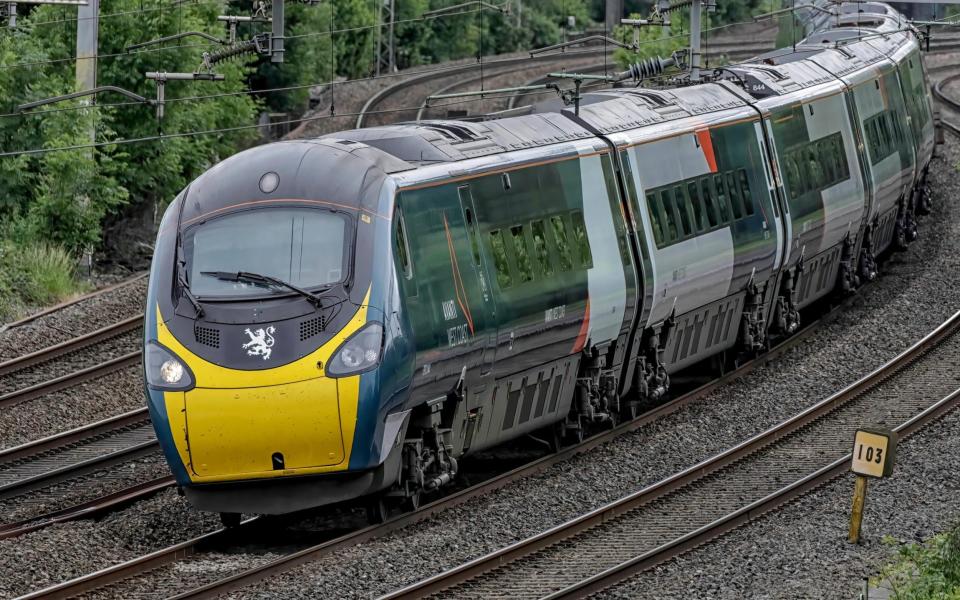The antiquated rules that could see weekend train services cut by half

Train drivers who refuse to work Sundays could force cancellations of dozens of services every weekend.
Rail chiefs fear that the antiquated rules where Sunday is treated as a rest day and relies on volunteers could see up to half the trains on one of Britain’s biggest franchises cancelled.
Avanti West Coast has already suffered a higher-than-anticipated number of early retirements and struggled to replace drivers with new ones during the pandemic because of Covid restrictions on training.
This has been compounded by increased sick leave owing to the latest surge in Covid infections.
Last weekend, 35 of the 200 services were cancelled. However, an industry source said: “Drivers are not doing rest-day working on Sundays which, combined with increasing levels of sickness, could result in 80 to 100 trains being cancelled.
“This is a classic example of stone-age working practices – Sunday being treated as not a normal working day, despite it being a seven-day-a-week network and drivers being very well paid. Drivers are not volunteering to do Sundays and can’t be compelled to do so.”
The moves came amid fresh threats of strike action by unions in their dispute with rail bosses over pay, jobs and attempts to reform working practices.

On Wednesday, members of the Transport Salaried Staffs’ Association (TSSA) voted to back strikes at LNER and c2c. Members at Northern have voted for action short of a strike.
The prospect of a summer of co-ordinated rail strikes rose when three union bosses threatened walkouts.
Mick Lynch, the general secretary of the RMT union, rallied rail workers at their annual general meeting by urging them to gear up for “the fight of our lifetime”.
Mick Whelan, the general secretary of the Aslef train drivers’ union, warned ministers that they faced a summer of discontent.
Grant Shapps, the Transport Secretary, has accused the unions of going on strike to defend “indefensible” practices such as Sunday working.
Because of the collapse in commuting, he said that rail’s growth lay at weekends, but the industry could not run enough trains because most Sunday working was voluntary, based on a 1919 agreement.
Mr Shapps said: “For millions more people, rail is now a choice, not a necessity. Anything that stops people choosing rail threatens the future of the network and the jobs of those on it. So why is the RMT taking this incredible risk?”

An Avanti West Coast spokesman said: “Like many industries, we are experiencing a shortage of key staff due to a number of factors including short-term sickness. This is affecting our services and we’re sorry for the impact this has had on our customers.
“The pandemic has also severely limited our ability to train new drivers and we’ve seen a higher than expected number of new drivers retiring early. It takes 18 months to train a driver, which means we can’t respond immediately to shortages but we’re working hard on training more drivers as quickly as possible.”
As well as Avanti West Coast, LNER, c2c and Northern, the TSSA is also balloting workers from seven other train operators and Network Rail.
Collectively, the RMT, Aslef and TSSA represent about 90,000 rail workers. They are demanding salary increases of at least seven per cent and want a guarantee of no compulsory redundancies.
During the last wave of strikes two weeks ago, RMT members walked out and chaos was largely avoided thanks to commuters choosing to work from home.
Rail bosses managed to keep about a fifth of services running on strike days. However, walkouts from all three unions would cause much greater disruption, with as few as one in 10 trains running.

 Yahoo Finance
Yahoo Finance 